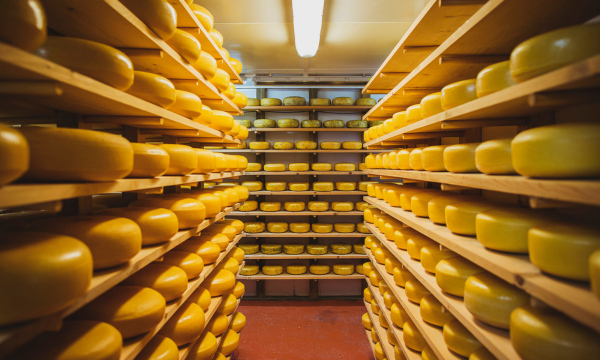
The value of Welsh red meat exports has risen substantially with Welsh Beef enjoying a 14 per cent rise and Welsh Lamb six per cent year on year, according to Hybu Cig Cymru-Meat Promotion Wales’ (HCC) analysts.
Some 9,000 tonnes of beef were exported in the first six months of the year, estimated to be 14 per cent higher than January-June 2023 and the value of these shipments has also risen by 16 per cent. The value of sheep meat exports has increased by six per cent, driven by stronger farmgate prices as domestic supply constraints have led to tighter export volumes of fresh and frozen sheep meat at 12,000 tonnes, a ten per cent decrease.
“September’s HCC Market Bulletin puts the focus on red meat trade in the first half of 2024 and reflects on positive news for the Welsh and UK beef industry in particular.
“In export terms, beef has seen strong momentum in this first six months of the year with double-digit rises in value and volume,” said Glesni Phillips. HCC’s Intelligence, Analysis & Business Insight Executive.
“HMRC data for the UK reports nearly 56,000 tonnes of fresh and frozen beef- worth £265.6 million- were exported in the first six months of 2024, an eleven per cent increase year-on-year with an increased value of nine per cent.”
Ireland remained the primary destination for UK beef exports, with the six-monthly increase in export volume largely driven by notable growth in shipments to the Netherlands, Hong Kong, and Canada.
Between January and June, the UK exported 37,400 tonnes of fresh and frozen sheep meat, with a value of £293.7 million, nine per cent higher than the same period in 2023 despite a volume drop of eight per cent.
“This increase in value reflects strong farmgate prices across the UK, even as domestic production saw significant declines. With UK sheep meat supply typically increasing in the second half of the year, there may be more product available for export later in 2024,” said Glesni.
Imports of both sheepmeat and beef increased during the period, with sheepmeat totalling 33,750 tonnes – an increase of 10,270 tonnes. This rise was driven by imports from the Southern Hemisphere, particularly from New Zealand (an additional 7,800 tonnes) and Australia (2,600 tonnes more). New Zealand accounted for nearly 64 per cent of the sheep meat imported into the UK.
“The increase in sheepmeat imports can be attributed to the lower price of lamb from the Southern Hemisphere, tight domestic supply, and the impact of the new Free Trade Agreement,” assessed Glesni.
“UK imports of fresh and frozen beef also rose during this period, with volumes up nine per cent to 120,200 tonnes with a value of £681.6 million. Ireland, the main supplier, increased its share of UK beef imports to 77 per cent and the volume of Irish beef imported grew by 16 per cent, a trend supported by Bord Bia’s report of plentiful cattle supply in Ireland,” she said.

























